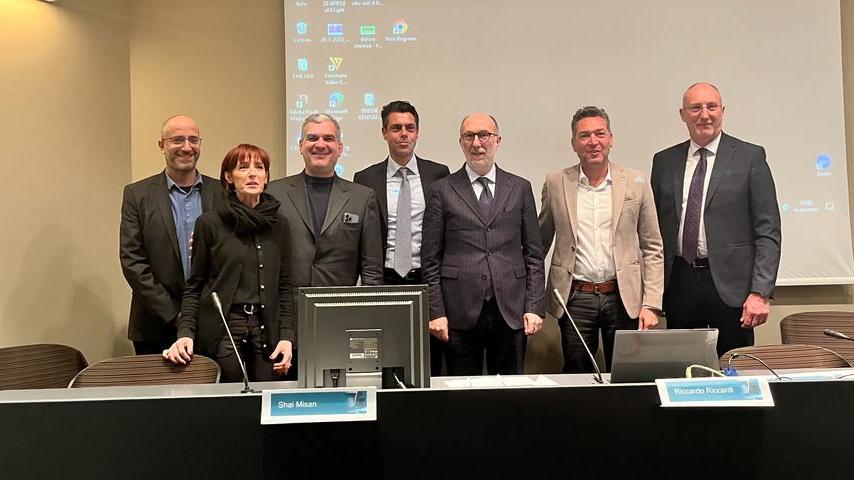

In his annual letter to shareholders (Apr 2015), Jamie Dimon, the famous JP Morgan Chase CEO, wrote: “Hundreds of startups with lots of brains and money were hard at work on alternatives to traditional banking”. Times have changed. To date, incumbents and startups have learned to collaborate as well as to compete, according to the circumstances. The following blog will deal with effective relationships between FinTechs & Incumbents.
Top tier incumbents have the means and sometimes the motivation to build innovative products and services themselves rather than collaborating with FinTechs. As an example, Vanguard, Charles Schwab & Fidelity have all chosen to build their own versions of robo-advisors, to compete with the challengers: Betterment & Wealthfront. Other incumbents like UBS and Wells Fargo have chosen to partner with FinTech Sigfig, while Blackrock has decided to acquire FutureAdvisor.
Smaller tier institutions have always relied on large independent software vendors (ISVs) as their technology partners. The emergence of FinTechs was an opportunity for incumbents to:
However, the above mentioned ‘win-win’ opportunities are not so easy to exploit. There’s often a cultural wall between the young entrepreneurs and the enterprise employees. This wall is lower for mature FinTechs and for those founded by enterprise veterans. Innovation teams were created by incumbents to facilitate collaboration. Those have put in place infrastructures and processes for efficient collaboration. Their level of maturity varies significantly between organizations.
Probably the “easiest way” to collaborate is capital. Goldman Sachs, Citigroup, and JP Morgan Chase & Co are the most active US bank investors in FinTech (by number of portfolio companies). Banco Santander leads as Europe-based investor bank. As mentioned before, banks are not only involved in venture financing, but also provides capital for debt. Large insurers have also increased their investments in InsurTechs as indicated by MunichRe’s recent investment in Israel-based Next Insurance.
Another vehicle for collaboration are various innovation programs and challenges run or sponsored by incumbents, as well as by consulting firms and ISVs (e.g. Zurich Innovation Championship). Despite the inflation of programs, they are still widely used to match needs to solutions. A more recent trend is the establishment of corporate-funded foundries like Kamet by French insurer AXA and Venture Studio by Spanish bank BBVA or Anthemis.
Lastly, fueled by the emergence of open banking regulations and by incumbents’ search for innovative business models in the digital age, we are witnessing the establishment of ‘Appstore-like’ initiatives for FinTechs like BBVA’s open marketplace, Fusion store by Finastraand Temenos marketplace. The value for startups is clear: large exposure to customers. On the corporate side it is an opportunity for providing value-added services, enhancing client satisfaction as well as generating new revenue streams.
Tapping into our long-term track record, at Axell we facilitate collaboration among our network of enterprises and technology partners. We structure and build innovative digital businesses for our clients through effective collaboration with our technology partners. We focus on Israel’s innovation ecosystem and enable various types of engagements, as described above.
Axell, an innovation builder for insurance and finance has formally launched today to be lead by founder Moshe Tamir, former Global Head of Digital Transformation at Generali, one of the world’s largest insurance companies and former Deputy CEO and CMO of Migdal Insurance.
Headquartered in Tel Aviv, Israel, Axell accelerates the digital transformation of financial services incumbents by co-creating new digital products and services.
By combining business modeling, design thinking with technology, we co-create with our clients specialized solutions at all stages of the value chain.
Axell removes friction from the startup engagement process, deliver better experiences, and prepare traditional financial services companies for disruptive changes ahead of them.
Axell’s ecosystem is comprised of startups, financial services institutions, investors, executives, entrepreneurs, and game-changers.
Much content can be found on why insurance is going to be disrupted and why financial services need to transform before it is going to be too late. However, this is not easy to be done from the inside of the organization. That’s where Axell comes in.
With decades of industry experience, the Axell team helps senior executives in insurance and financial services companies understand how technology and new human behaviors will change the future of their industry.
Axell structures and builds innovative digital businesses by leveraging its distinct network of technology partners and entrepreneurs around the world.
We provide priority access to the Israeli innovation ecosystem with a specific focus on technologies impacting financial services.
Why Israel?
Tel Aviv, Israel, is one of the most thriving tech-development industries in the world today that can give us quick access to the best opportunities in the FinTech and InsurTech space. This creates accelerated growth opportunities for both our corporate clients, representing them on the ground here in Israel as well as for our technology partners.
Tap into Axell’s ecosystem and transform your business today.
Tapping into our long-term track record, at Axell we facilitate collaboration among our network of enterprises and technology partners. We structure and build innovative digital businesses for our clients through effective collaboration with our technology partners. We focus on Israel’s innovation ecosystem and enable various types of engagements, as described above.
Yours truly – Moshe || Follow us on LinkedIn


